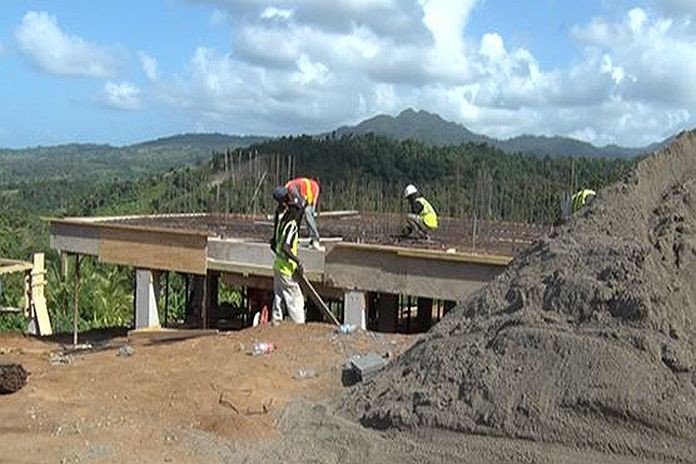By Steven Dorst
The island nation of Dominica, home to some of the Caribbean’s most breathtaking natural beauty, lies smack in the middle of hurricane Alley.
Because of its rugged topography, with dense mountain rain forests and nine active volcanoes, most of the country’s 72,000 denizens live along the coast – vulnerable to strong winds, high seas, and landslides.
The situation has become increasingly volatile with the growing frequency and severity of extreme climate events.
In 2017, Category 5 hurricane Maria ripped a catastrophic path of destruction through the island. Whole communities, government buildings, roads and bridges, and power and water services were damaged or destroyed, resulting in the loss of lives and $1.2 billion in damage in just a few hours.
With growing climate threats looming, Dominica knew it had to adapt. The fallout from the storms “convinced everybody that it was not optional to become a disaster-resilient nation. It was a matter of survival for all Dominicans,” says Alejandro Guerson, IMF mission chief for Dominica.
The enormity of the crisis led to a pivotal shift. After hurricane Maria, “the task of building back better and becoming a more resilient nation in all aspects became the mantra for the government,” says Denise Edwards, Dominica’s financial secretary.
The question was how. Rebuilding to climate-resilient standards would cost 25 percent more than traditional methods. Even more daunting, the country had just suffered damages totaling 226 percent of GDP. Moreover, benefits materialize only over time, making financing choices difficult.
But the business case was already on display. The airport, inoperable after 2015 Tropical Storm Erika, was up and running a few days after hurricane Maria, thanks to measures taken to build back better. Likewise, communities rebuilt to new resilience standards were still intact.
“This was proof you could see that we can build infrastructure that can stand up even to the might of a Category 5 hurricane,” says Francine Baron, chief exevutive officer of the Climate Resilience Execution Agency for Dominica.
The IMF began working with Dominica to understand the probability and intensity of natural disasters, as well as the costs and benefits of building to new standards. Armed with a new framework and strategy, the government launched on a path to become the world’s first nation resilient to hurricanes, earthquakes, and other natural disasters.
Efforts are focused on upgrading and expanding the road network, including making bridges higher to allow for water and debris overflow, building resilience into the housing sector, and upgrading hospitals and health centers. Investments also support resilient agriculture for food security, education, reforestation, and community preparedness training, among other things.
As a small island state that did not cause global warming, Dominica is suffering the consequences—and the cost of adapting—disproportionately.
“If we want to make a meaningful contribution to helping small states adapt to climate change, then the international community needs to step up,” says Baron.
Indeed, Dominica serves as a beacon for other countries, making smart, tough decisions to protect its people in a world that is changing fast.
This article first appeared in the most recent issue of Finance & Development Magazine produced in conjunction with COP26
Steven Dorst is a documentary film producer.
Read the entire Fall 2021 climate issue of Finance & Development, produced in partnership with COP26.





